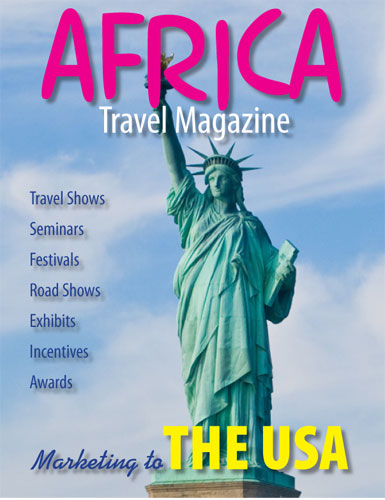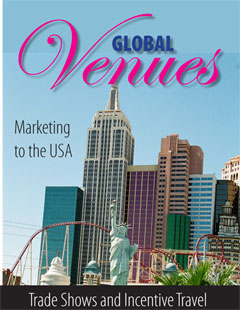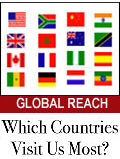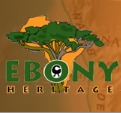Understanding the
scale of Africa’s growth potential
While growth varies
across the continent, Africa is home to six of
the top 10 fastest-growing economies in the
world. That is not to say that the picture is
entirely rosy. In fact, three of Africa’s
largest economies – South Africa, Nigeria and
Angola – are experiencing serious and unique
economic challenges which are depressing
continental growth. Despite these challenges,
the continent is still growing at a rate of 3.6
per cent. Not only is this rate faster than the
global average, but many economists expect
Africa’s growth to accelerate in the coming
years.
Africa’s relatively young and fast-growing
population should help bolster and sustain
growth for the foreseeable future. This is in
contrast to many parts of the advanced and
developing world which are experiencing or will
experience aging populations and shrinking
workforces. Africa’s working-age population is
projected to expand from 700 million today to
one billion by 2030. During the same period, the
total population will grow from 1.2 billion to
1.7 billion.3 Fast-growing populations can also
present challenges, such as necessitating the
creation of enough jobs for workers entering the
workforce, but, if well managed, Africa’s large
workforce could drive a rapid economic
expansion.
As the population grows, so too will the number
of middle-class Africans. By 2030, 212 million
sub-Saharan Africans will be part of the middle
class, an 86 per cent increase from 2015.4 The
McKinsey Global Institute forecasts that
household consumption will grow from USD 1.4
trillion in 2015 to USD two trillion in 2025.
While a large share of this total consumption
will come from the most affluent households (USD
50,000 in annual income), many Africans will
become emerging consumers or global consumers,
earning between USD 5,000 and 50,000 per year.
These consumers are able to spend beyond their
basic needs.5
By 2030, 212 million sub-Saharan Africans
will be part of the middle class, an 86 per
cent increase from 2015.
For this development to be possible, it is
expected that more Africans will move to the
cities where jobs are more plentiful, productive
and better paying. Nearly 200 million new urban
residents are anticipated by 2025. At that time,
Africa is expected to be the world’s
fastest-urbanizing region, and by 2045 it will
have a larger urban population than China or
India. The rate and scale of urbanization will
be transformative and could make African
consumers more connected to the global market.
African workers and consumers have been slower
than in other parts of the world to obtain
access to the internet and smartphones, but
there have been significant gains in recent
years. According to data from GSMA Intelligence,
there will be significant growth in internet and
smartphone usage by 2025. The number of
connected smartphones is projected to increase
from 250 million in 2017 to 690 million in
2025.6 Better access to the internet will allow
these users to take advantage of e-commerce
platforms for goods and services.
Africa’s Plentiful Business
Landscape Make Now the Perfect Time to Enter the
Market
For U.S.
companies looking to expand globally, the
African continent has valuable resources to
support business growth and development.
“[Africa has]
60% of the world’s arable land, [a]
fast-growing youth population, digital
adoption, [and] natural resources,” said
Young. “The reasons to enter the African
continent have always been there; it’s just
we haven’t been entering the continent,
really.”
And, with the
U.S. government’s recent ongoing efforts to
strengthen U.S.-African business relations,
American businesses could more easily break
into Africa’s market.
“I think the
political will is really there now to
support [business growth in Africa],” Young
added, citing the Prosper
Africa initiative and the recent U.S.-Africa
Leaders Summit. “Now is really just a
fantastic time, and a lot of that is because
of the will of the U.S. government to help
support the entry.”
Public Sector Resources Can
Help American Businesses Expand into the Market
“We went to our bank and, at
the time, we were too small. The bank would
not be able to give us working capital to
execute the transaction, and the banker
referred us to EXIM Bank,” he explained.
“Since then, we’ve used all the products
that you can possibly use to export Africa —
medium-term transactions, short-term
transactions, and even insurance programs to
insure our products and protect our
payments.”
Dr. Darko also cited several
public sector programs — including the Gold
Key Service for matchmaking between U.S.
companies and foreign market partners, the Market
Access Program (MAP) for sharing
international marketing and promotional
costs, and Trade
Missions for facilitated networking
between American and international business
leaders — as “very impactful.”
For Inclusive Growth in Africa, U.S. Companies
Must Make Space for the Minority Business
Community
For
American companies considering expanding
into Africa, it’s critical to make space for
minority entrepreneurs — including those
from communities of color and diaspora
communities — to take part in the African
business growth story. According to both
panelists, this begins with taking a step
back to understand the market and the people
within it.
“One of the most important
things to me … [is] actually going to the
continent,” emphasized Young. “Actually
being on the ground, seeing and feeling the
different communities, and understanding
what the pulse of the different countries
[and] cities is like, [is] where opportunity
actually sits.”
If traveling to Africa isn’t
feasible, Young recommended finding and
consulting with a partner, “whether it’s at
a law firm, at a bank, [or] at any large
institution that might be able to chat with
you about ways to enter [the market].”
Dr. Darko also encouraged
business leaders to get involved with events
and organizations that support inclusive
U.S. business growth in Africa.
“A lot of these
organizations host conferences … [and]
sometimes you have Africans traveling here,”
Dr. Darko added. “Being in some of
these conferences is a good way to find
people, to make connections, and then
hopefully be able to execute on your goal or
dreams.”
AFRICAN IMMIGRANTS HAVE THE HIGHEST ACADEMIC ACHIEVEMENT
IN THE US
October 2, 2015
 African
Immigrants have the highest educational attainment
rates of any immigrant group in the United States
with higher levels of completion than the
stereotyped Asian American model minority. It is not
only the first generation that does well, as
estimates indicate that a highly disproportionate
percentage of black students at elite universities
are African or the children of African immigrants.
In an an**ysis of Census Bureau data by the Journal
of Blacks in higher education, African immigrants to
the United States were found more likely to be
college educated than any other immigrant group.
African immigrants to the U.S. are also more
highly educated than any other native-born ethnic
group including white Americans. Some 48.9 percent
of all African immigrants hold a college diploma.
This is slightly more than the percentage of Asian
immigrants to the U.S., nearly double the rate of
native-born white Americans, and nearly four times
the rate of native-born African Americans.
In 1997, 19.4 percent of all adult African
immigrants in the United States held a graduate
degree, compared to 8.1 percent of adult whites and
3.8 percent of adult blacks in the United States,
respectively. This information suggests that America
has an equally large achievement gap between whites
and African/Asian immigrants as it does between
white and black Americans.
Of the African-born population in the United States
age 25 and older, 86.4% reported having a high
school degree or higher, compared with 78. 9% of
Asian born immigrants and 76.5% of European born
immigrants, respectively. These figures contrast
with 61.8% percent of the total foreign-born
population.
“The interest is there in the market;
customers just need a little more information to buy
with confidence.”
Julia Berk
At the retailer where I work (the Premier Group, in
western New York State) I’m the official South
African wine advocate, having worked the 2010
harvest in Stellenbosch. None of the other wine
associates have a specific background in South
African wine, but they are always interested in the
bottles I bring to tasting dinners and enjoy many of
the wines we carry in the store. Likewise, my bosses
are always interested in tasting South African wines
and carried a substantial selection even before I
began working at the store. Lately our selection has
improved dramatically. What we need next is
empowered customers — and that’s an area needing
improvement in the U.S. market as a whole.
I’ve encountered, by and large, open-minded
enthusiasm from my customers toward South African
wine. I’m very involved in our Wine Education
Center, which offers classes to the public on a
variety of topics, and my first big project at
Premier was a class entitled “Introduction to the
Wines of South Africa.” It was booked to capacity
well in advance. There was a clear interest in the
topic, especially on the heels of the World Cup. On
the sales floor, I’m always on lookout for
opportunities to say, “how about a South African
wine?” With few exceptions the response is
receptive, and I even encounter people seeking out
South African wine on a regular basis. The odd
customer with a bias against South African wine is
typically a snob with similar disregard for other
“non-traditional” wine-producing regions and will
only be happy with France, California or Italy. (I
know, SA has been making wine longer than the USA.
Don’t get me started.)
My point is that the interest is there in the
market; customers just need a little more
information to buy with confidence. Salespeople like
me who have intimate familiarity with and passion
for South Africa, who can put a bottle in someone’s
hands and say, “I really love this wine and I think
you will, too,” are helpful on our side – but
producers and industry people on your side can help
make the connection. Perhaps South African
representatives are finding New York City rather
disappointing? Try western New York — it’s a less
crowded scene trend-wise and you’ll be dealing with
outstanding retailers and sophisticated customers
who aren’t just looking for what’s hot this minute.
Classes and tastings led by South African industry
professionals will do wonders for connecting with
the wine-buying public. If I put the word out on
Facebook and the web that a South African winemaker
(or really, just a South African person, for that
matter) was coming to give a presentation at the
store, people would love it. Store staff, too, would
greatly appreciate and benefit from a little more
education which we can then pass on to customers.
Besides the personal connection, any chance for
customers and salespeople to actually taste the
wines is a good thing. After spending time in South
Africa I realized that most of the best wines in the
country were exported in tiny quantities or not at
all, and a lot of what’s available in the US is,
well, not as good. This is true of all imported
wines to some extent, but unfortunately some
imported South African wines are blatantly smoky and
rubbery, and these wines don’t show well next to the
fruit bomb shiraz and malbecs of the world. I taste
every South African wine in our store and can steer
customers in the right direction to make sure their
first experience with South African wine is a good
one. When they’re shopping on their own, chances are
they’ll end up with something with an “exotic” label
that may or may not be well made. Any negative
impressions among retailers about South African
wines (I’m sure you’re sick of hearing about Brett,
as am I) are rooted in the poor examples that get
sent here because South Africans probably wouldn’t
drink them.
Customers need to be more familiar with specific
styles and Wine of Origin appellations as well. If
there is a way to make appellations such as Walker
Bay, Swartland, etc. more prominent on the labels we
can work on branding those regions the way South
America has succeeded in branding its various
appellations. Right now, the average customer
doesn’t recognize the word Stellenbosch, let alone
Elgin or Franschhoek. In terms of wine styles, my
vote goes to chenin blanc, Rhone-style blends,
sauvignon blanc, and Bordeaux blends as Most Likely
to Succeed in this market, with Cape blends,
chardonnay and shiraz/syrah a close second. I would
love to see more merlot and malbec exported as I
think they’d do very well here.
South Africa’s potential appeal as a wine-producing
nation can’t be understated. Just the reactions to
my little blog alone showed me how enchanting and
captivating the country really is to Americans
(myself firmly included!). Stunning scenery, a
veritable playground of cultural diversity, a high
profile in the U.S. (being able to locate a country
on a map is, for better or for worse, a big selling
point for Americans), and sexy, exciting, soulful
wines that are big on flavor and stunningly varied
in style — South Africa hits all the bases for
potential wine stardom. But with customers that are,
even in this day and age, still extremely insecure
about trying new things in the wine world, education
is key. Keep trying to connect with wine drinkers
and industry people here. And get outside NYC, where
you’re a small fish in a huge pond. Play up the
things that make South Africa special and eschew the
Brand Australia gimmicky marketing and Parkerization.
I believe in a bright and exciting future for South
African wine, and the more great wine and passionate
people we see on this side of the pond, the easier
my job is selling it.
|


![]() ;;;Best
Value .
Your logo link on
this webwsite which Googles
#1 for
Marketing Africa Travel, Trade, Tourism and Transportation
;;;Best
Value .
Your logo link on
this webwsite which Googles
#1 for
Marketing Africa Travel, Trade, Tourism and Transportation

















 African
Immigrants have the highest educational attainment
rates of any immigrant group in the United States
with higher levels of completion than the
stereotyped Asian American model minority. It is not
only the first generation that does well, as
estimates indicate that a highly disproportionate
percentage of black students at elite universities
are African or the children of African immigrants.
African
Immigrants have the highest educational attainment
rates of any immigrant group in the United States
with higher levels of completion than the
stereotyped Asian American model minority. It is not
only the first generation that does well, as
estimates indicate that a highly disproportionate
percentage of black students at elite universities
are African or the children of African immigrants.



